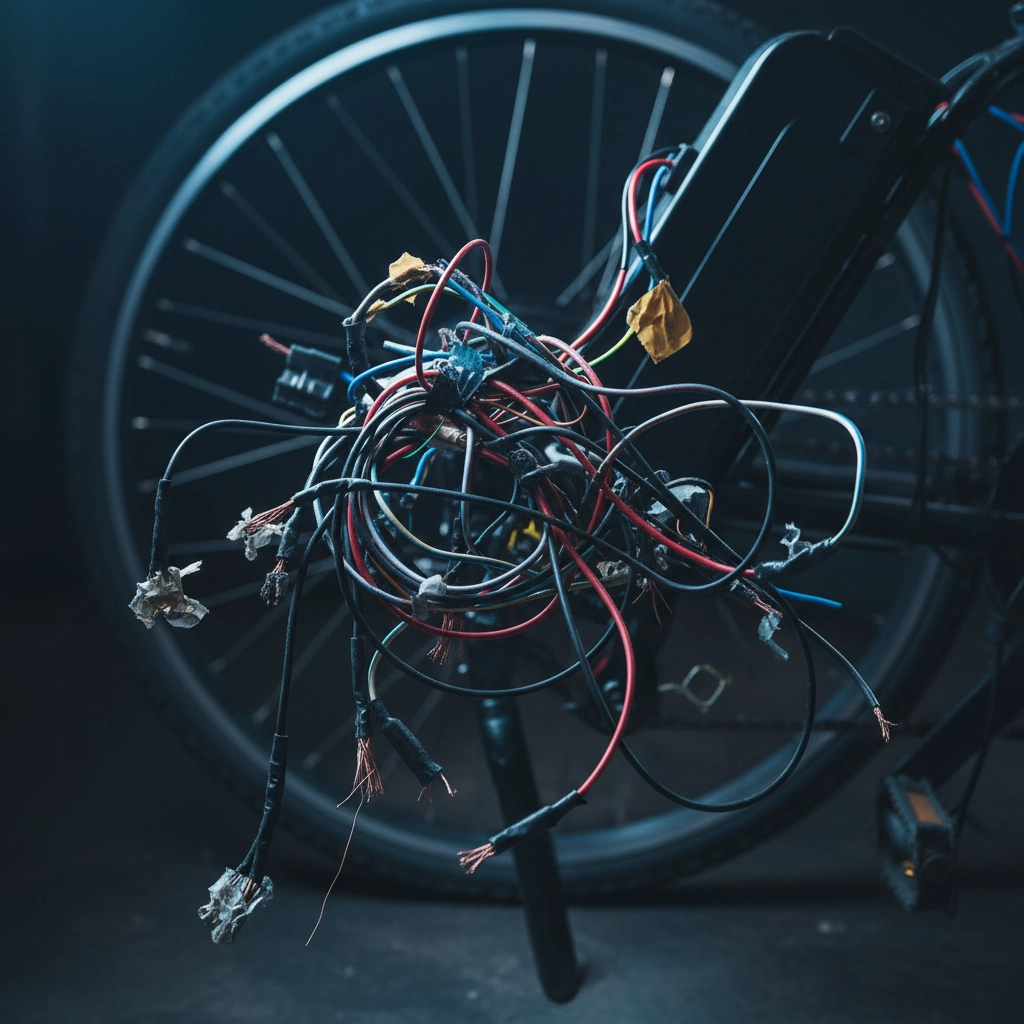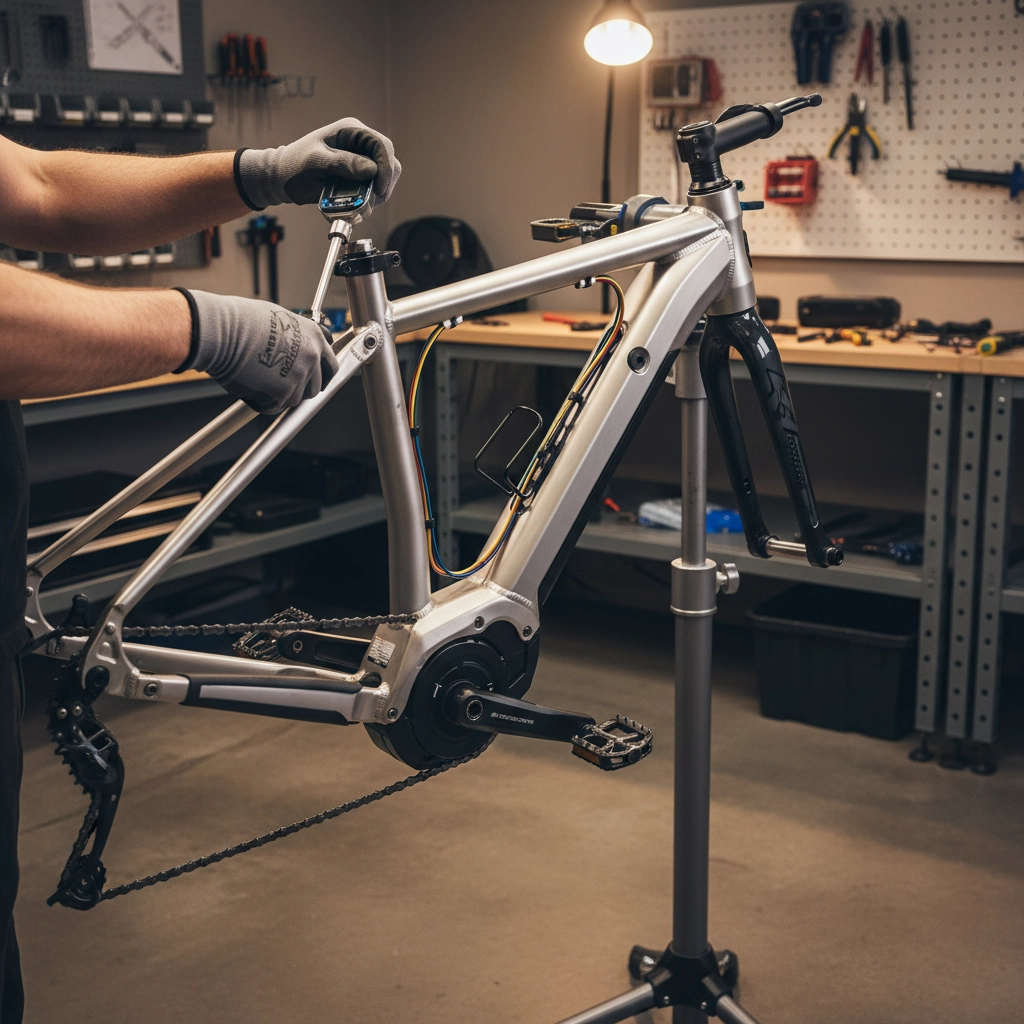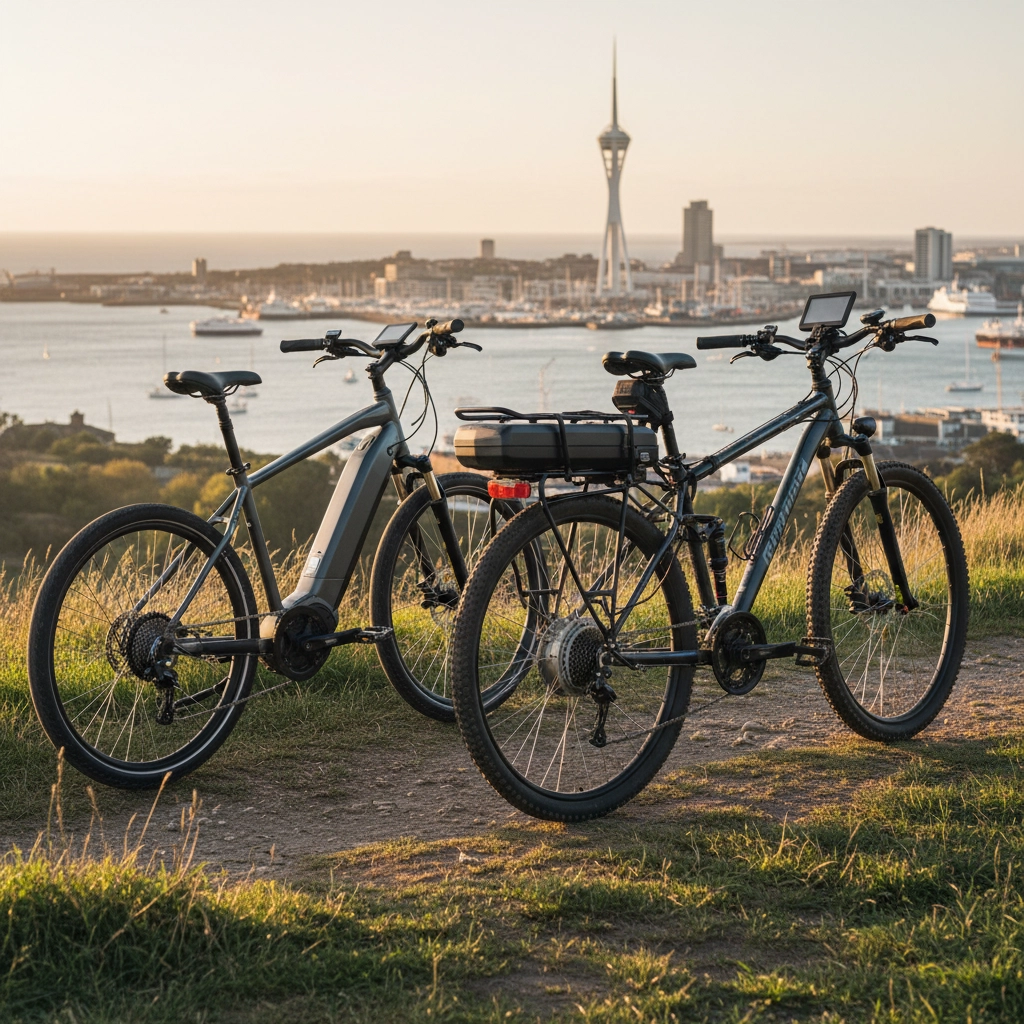Professional vs DIY E-Bike Conversions: Which Is Better For Your Safety?
Posted by Tony Childs on
Thinking about converting your trusty bicycle into an e-bike? You're not alone! With more folks in Portsmouth, Southsea, and Gosport looking to make their daily commute easier (especially with all those hills around here), e-bike conversions have become incredibly popular. But here's the big question: should you tackle it yourself or leave it to the professionals?
Let's be honest – safety should be your top priority. The choice between a DIY conversion and professional installation can make a massive difference to your riding experience and, more importantly, your wellbeing on the road.
The DIY Route: Tempting but Tricky
We get it – DIY conversions look brilliant on paper. You save money, get that satisfying feeling of building something yourself, and there are loads of YouTube videos making it look dead easy. But before you dive in with your toolkit, let's talk about what you're really getting into.
The Appeal of Going Solo
DIY conversion kits can cost anywhere from £200 to £800, compared to professional conversions that might run £1,000 or more. For many people in our area, that price difference is significant. Plus, there's something quite appealing about understanding every bolt and wire on your bike.
The Reality Check
Here's where things get a bit sticky. Converting a bike isn't just about bolting on a motor and battery – it's about creating a safe, integrated system that won't let you down when you're bombing down the hill from Portsdown or navigating busy traffic in Southsea.
Electrical Hazards
Amateur wiring is genuinely dangerous. We've seen DIY conversions come into our shop with exposed wires, improper connections, and downright scary electrical setups. Poor wiring can lead to short circuits, component failures, and in the worst cases, fires. Lithium batteries are particularly unforgiving – get the charging system wrong, and you could have a serious problem on your hands.

The Braking Problem
This is the big one that many DIY enthusiasts overlook. Your standard bike brakes were designed for, well, a standard bike. Add 20-30 mph speeds and an extra 10kg of motor and battery, and suddenly those rim brakes or basic disc brakes become woefully inadequate.
We've had customers come in after DIY conversions who couldn't stop properly – imagine hitting the brakes hard coming down from Hilsea and nothing happening quickly enough. It's genuinely frightening.
Weight and Handling Issues
Most DIY kits create rear-heavy bikes that handle like shopping trolleys with wonky wheels. The motor goes on the back, the battery goes on the back, and suddenly your bike's balance is completely off. This affects everything from cornering to stability, especially when you're carrying shopping or dealing with Portsmouth's notorious potholes.
When DIY Might Work
Don't get us wrong – some people can absolutely pull off a safe DIY conversion. If you've got serious mechanical experience, understand electrical systems, and are willing to invest in proper safety upgrades (better brakes, appropriate tyres, proper lights), it's possible. But we're talking about maybe 5% of the people who attempt it.
Professional Conversions: The Safer Bet
Professional installation isn't just about paying someone else to do the work – it's about getting a properly integrated, safe system that's designed to work together.
Proper System Integration
When we convert a bike professionally, we're not just bolting on parts. We're looking at the whole system: how the motor integrates with your existing drivetrain, whether your brakes are adequate for the new speeds and weight, if your wheels can handle the extra torque, and whether the electrical system is properly protected.

Safety First Approach
Professional conversions typically include upgraded components that DIY kits often miss. This means hydraulic disc brakes that can actually stop you, reinforced wheels that won't buckle under motor torque, proper cable routing that protects wiring, and integrated lighting systems that work reliably.
Local Regulations and Insurance
Here's something many DIY converters don't consider – insurance and legal compliance. Professional conversions ensure your bike meets UK regulations (250W maximum power, 15.5 mph assisted speed limit). More importantly, many insurance companies want to see professional installation certificates if you're claiming for an e-bike.
Warranty and Support
When something goes wrong with a DIY conversion (and it often does), you're on your own. Professional installations typically come with warranties and ongoing support. If your motor starts playing up on your way to work in Gosport, you know exactly who to call.
Trusted Conversion Kit Partners: Boost and Swytch
We work with trusted conversion kit partners to deliver safe, professionally fitted e-bike upgrades tailored to how and where you ride in Portsmouth, Southsea and Gosport. We’ll help you choose the right system, fit it properly, and make sure it meets UK regulations and your day-to-day needs.
Boost
- Suitable for a wide range of bicycles, including road, hybrid, mountain, and even Brompton and Moulton folding bikes.
- Discreet rear-wheel motor with a range up to 50km, plus a free app for easy control.
- Covered by a 1-year warranty and praised for ease of installation and ride quality.
- Compatible with multiple frame types and materials (carbon, steel and aluminium).
- Helpful advice resources, including a Boost vs Swytch comparison with tips on rear motors, battery details and practical fitting.
Swytch
- Converts almost any bike: road, hybrid, folding, mountain, step-over and single speeds.
- Lightweight motor wheel, handlebar-mounted battery pack and pedal sensors; many installs can be done in under an hour.
- Batteries certified to stringent UN and CE safety standards; designed for easy swapping between e-bike and standard bike modes.
- Weatherproof to IPX6+ and available for purchase with professional installation at Swytch-trained partner stores.
- Widely praised for value and reliability, letting you keep the bike you already love while adding electric assist.
Not sure which kit suits you? Pop in or book a chat - our mechanics can compare options with you and handle the professional fitting, safety checks and aftercare.
The Numbers Game: Safety Comparison
| Safety Factor | DIY Conversion | Professional Conversion |
|---|---|---|
| Electrical Safety | High risk of faults | Tested, certified systems |
| Braking Performance | Often inadequate | Properly matched to speed/weight |
| System Integration | Hit-and-miss | Engineered as complete unit |
| Regulatory Compliance | Frequently non-compliant | Built-in legal compliance |
| Fire Risk | Elevated due to amateur wiring | Minimised through proper installation |
| Handling Safety | Often compromised | Balanced weight distribution |
| Long-term Reliability | Variable | Professional testing and quality control |
Local Considerations for Portsmouth Area
Living around here brings some specific challenges that make professional conversion even more sensible. Our hills are no joke – Portsdown Hill will test any conversion's limits. The stop-start nature of city traffic means your brakes get a proper workout. And let's be honest, the weather isn't always kind to electrical systems.
We've seen too many DIY conversions fail during winter months when moisture gets into poorly sealed connections. Professional conversions use weather-sealed components and proper cable routing that can handle our coastal climate.

Making the Right Choice for You
Go Professional If:
- Safety is your top priority (and it should be)
- You're planning to use the bike for regular commuting
- You lack extensive mechanical and electrical experience
- You want warranty protection and ongoing support
- You need reliable daily transport for work or family commitments
Consider DIY Only If:
- You have genuine mechanical and electrical expertise
- You understand and accept the increased risks
- You're willing to invest in proper safety upgrades
- You're building for occasional recreational use
- You can afford to redo it properly if things go wrong
The Bottom Line
While DIY conversions might save money upfront, they often end up costing more in the long run when you factor in safety upgrades, fixing problems, and potential accidents. Professional conversions give you peace of mind, proper safety standards, and systems that actually work together.
At GC Bike Repairs, we see the results of both approaches regularly. The professionally converted bikes keep running reliably year after year, while DIY conversions often end up in our workshop for expensive repairs or complete rebuilds.
Your safety – and that of other road users around Portsmouth – is worth investing in. Whether you're commuting from Gosport to Portsmouth Harbour or just want to make those Southsea seafront rides more enjoyable, a professional conversion gives you the confidence to ride safely and reliably.
Remember, an e-bike conversion isn't just about adding power to your pedalling – it's about creating a safe, integrated transport solution that'll serve you well for years to come. Choose wisely, and you'll wonder how you ever managed without it.
